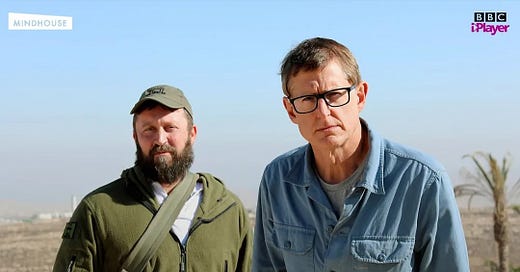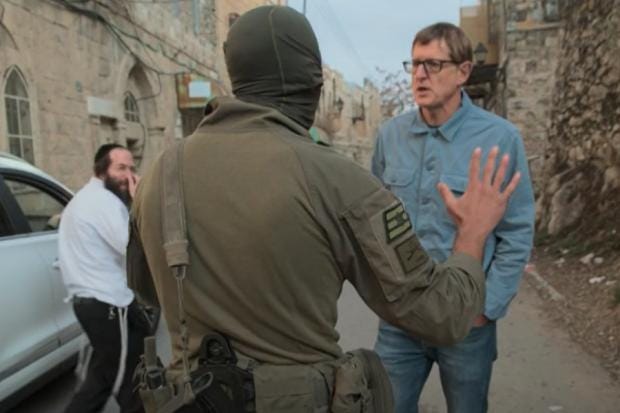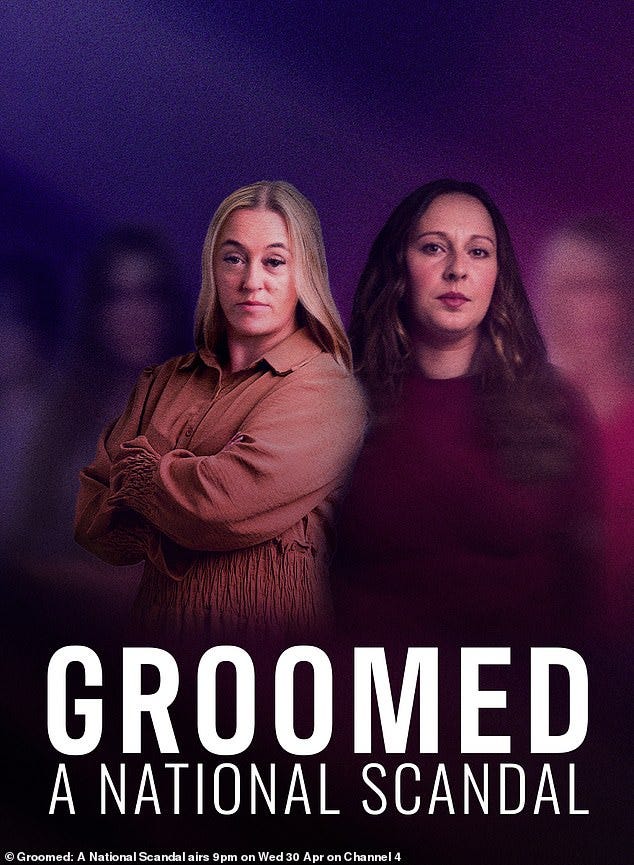Louis Theroux’s ‘The Settlers’ paints a grim picture of life in the occupied West Bank
My verdict on the “controversial” BBC documentary. PLUS an unflinching expose of the grooming gangs scandal.
As the world’s attention is focused on the war in Gaza, and the desperate humanitarian crisis in the coastal enclave, Israeli military operations in the occupied West Bank have largely gone unnoticed.
At least 1,860 incidents of settler violence were recorded between October 7 2023 and December 31, 2024, according to data from the United Nations Office for the Coordination of Humanitarian Affairs.
This grim reality prompted documentary filmmaker Louis Theroux’s recent visit to the West Bank. Readers may remember his 2011 film on the region’s settler movement, The Ultra Zionists.
Now, 14 years on, Theroux finds that not only have the settlements expanded, but the ideology has gained political traction.
Israel now has the most right-wing government in its history, with Prime Minister Benjamin Netanyahu leaning on the support of pro-settler parties for his political survival.
In The Settlers, Theroux does what he does best, which is allowing people to speak and expose their views to the world. And that often makes for uncomfortable viewing.
“There are some things that transcend the whims of legislation,” says Ari Abramowitz, a gun-toting Texan settler in the West Bank, or Judea and Samaria as he calls it. The Bible, he says, is a land deed for the Jewish people. Proof that fanaticism is not unique to one faith or people.
Then there’s Daniella Weiss, aka the “godmother” of the settler movement. And wow, is she the gift that keeps on giving.
The 79-year-old grandmother boasts that she can phone Prime Minister Benjamin Netanyahu’s aides whenever she wants.
Not content with just the occupied West Bank, Weiss has Gaza in her sights. This idea of resettling the strip has gained momentum since October 7. At the Gaza border, we meet a rabbi who calls Arabs “savages” and “camel riders”.
The Settlers paints a pretty bleak picture. So much so that Theroux struggles to maintain the bumbling charm that has become his trademark.
In a tense encounter with a pair of balaclava-clad IDF soldiers in Hebron, Theroux snaps “don’t touch me” when they probe him on why he’s filming. He later calls Weiss a sociopath.
The film also depicts the difficulties Palestinians go through at the hands of Israeli soldiers.
In Hebron, Theroux meets Arab activist Issa Amro, where we see just how strictly locals’ movements are controlled and how little freedom they have. IDF soldiers approach the pair and ask Amrou if he is Palestinian, before informing him that he’s not allowed in that area.
As many as 700,000 Israeli settlers are living illegally in the West Bank. This, for many, undermines the two-state solution and any prospect for peace, as they get tacit support from the Israeli government.
(For a more nuanced take on the subject you can read this Fathom piece by Samuel Lebens, who insists that not all settlers are xenophobic Palestinian haters.)
Critics of Theroux have waded in to complain that he has only shown the extreme settlers, who don’t represent all Israelis, or that Theroux only went to the worst areas in the occupied West Bank, such as Hebron.
“He wouldn’t dare make a documentary on extremist Islam!” others insist.
But it’s telling that they have to resort to whataboutery; many of them even admit that the settlers in the documentary are indeed reprehensible.
And if that is the case, why is it a problem to show them for who they are, or even to denounce them? I wouldn’t balk at the idea of a film about Muslim extremists and there’s been plenty done on that subject.
Theroux’s team didn’t promise anything beyond what they set out to do.
Incidentally, I don’t think extremists like Weiss and Ari are representative of their fellow countrymen.
When I think of Israelis, I recall the people who I met when I visited the country last year.
The likes of Gal Tzuri, a left-wing cinema studies teacher from Mefalsim, a kibbutz whose residents wanted peace with their Palestinian neighbours.
Despite being convinced that an Arab worker from Gaza had betrayed them (the terrorists who broke into Mefalsim on October 7 were armed with a detailed map of the kibbutz) Gal couldn’t bring himself to completely denounce his old friend. He believes he was under duress from Hamas.
“I still consider him as family,” he said. “We’ve been through so much together.”
Ditto Amit Phillips, who said: “If I were in his place, I probably would have done the same. It was an impossible situation for him.”
I also think of the residents of kibbutz Nir Oz, who said they felt let down by the Israeli government on, and after, October 7.
Or the young Jewish man who invited me to his wedding after meeting me for the very first time.
And of Emilio Navarro, from Mefalsim, a former engineer who thoughtfully offered me dates after asking where my family was from.
‘You’re Pakistani, so you should like these!’ He said with a cheeky smile.
Things like that give me a sense of hope, as does a scene in Theroux’s documentary in which Israeli activists attempt to shield Palestinian olive farmers from settlers and soldiers.
I wish they’d been given more airtime, but I appreciate it’s difficult to tell a complex story in just 60 minutes.
The Settlers is available to watch on BBC iPlayer.
Grooming Gangs: a scandal that should shame us all
Channel 4 aired a documentary this week on the grooming gangs, which looks back at the scandal that has affected thousands of young girls in this country.
This unflinching expose was timely, as Jess Phillips, the minister for safeguarding, admitted earlier in the week that there had been a “cover up” for “multicultural reasons” — these girls were sexually abused by men mostly from British-Pakistani backgrounds. Understandably, it’s become a deeply polarising political issue.
I wrote a piece about it for UnHerd, in which I argued that silencing the debate out of fear of being branded racist, “Islamophobic” or amplifying the “right-wing” narrative has racialised the crime even more.
You can read the piece here.
But back to the documentary, which was told mainly from the victims. We heard the harrowing accounts of these young women, teenage girls back then, who were shockingly labelled “child prostitutes”.
It made for difficult viewing, as we heard how these girls, some as young as 11, plied with drugs and drinks before being passed around from one man to another for sex.
No. Rape. Let’s call it what it was.
“How a society treats its most vulnerable is always the measure of humanity.” That’s a statement once made by ambassador Matthew Rycroft of the UK Mission to the UN.
And we have treated our children appallingly.
The men who committed those crimes are worse than animals. But those girls were failed by their care home workers, the politicians and the police who allowed this to happen on their watch. They’re also culpable.
Last month Sir Keir Starmer said he wants the fictional Netflix series Adolescence to be shown in Britain’s parliament and in schools.
By contrast, Groomed is an actual documentary that lays bare the horrors those young girls faced. Will the Prime Minister urge this to be broadcast to schoolchildren up and down the country?
You can watch Groomed: A National Scandal here.







Of course these settlers should be shown fornwhonthey are. Most people fnisraelinsociety detests them. However, if it's portrayed as though they are the norm of settlers in the West Bank then the audience is indeed being purposely misled